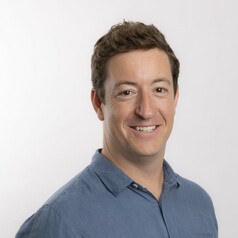
Christopher Patterson
Senior Lecturer, School of Nursing, University of Wollongong
Dr Christopher Patterson is a Lecturer within the School of Nursing, University of Wollongong, and a Registered Nurse, with specialist qualifications in mental health.
Christopher is an active researcher, with research interests that include teaching and learning within the nursing workforce, mental health stigma and improving the health of people with lived experience of mental illness.
In addition to his research, Christopher is also the co-founder/co-director of the award winning initiative, Recovery Camp (www.recoverycamp.com.au). Christopher is wholly committed to making a difference in the lives of people who are living with mental illness, as well as assisting future nursing professionals develop recovery-oriented skills.
Less ![]()

Christopher Pepping
Associate Professor in Clinical Psychology, Griffith University
Dr Pepping is Associate Professor in Clinical Psychology in the School of Applied Psychology. His research is focused broadly on the social determinants of mental health and has two main interdependent themes: (1) mental health of stigmatized groups, with a particular focus on LGBTQ+ populations; and (2) close relationships, including the role of social connection and disconnection in mental health outcomes, experiences of singlehood, and the conditions under which relationship processes may buffer the effects of stigma. Dr Pepping’s research program includes national longitudinal cohort studies, intervention development and evaluation, and experimental research. His work has featured in national and international media, including SBS, ABC Radio, New York Times, Yahoo News, The Independent, and Medical News Today.
Dr Pepping is a Member of the Australian Psychological Society (APS), a Fellow of the APS College of Clinical Psychologists, and a Member of the Australian Professional Association for Trans Health. He serves on the Scientific Advisory Committee of the Mental Health Foundation Australia, and has served on Editorial Boards of scientific journals including Journal of Social and Personal Relationships, Mindfulness, and BMC Psychology. He teaches and supervises students enrolled in postgraduate psychology programs and provides training to psychologists and mental health practitioners in LGBTQ+ Affirmative Therapy. Dr Pepping is passionate about research supervision and has supervised to successful completion 41 PhD, Doctorate, Masters, and Honours students. He also maintains a small clinical practice.
Research Interests: LGBTQ+ mental health; Mental health consequences of stigma; social/relational determinants of psychopathology; role of internalized stigma in the development and maintenance of mental health problems; singlehood experiences (well-being, stigmatization, and mental health outcomes); romantic relationships; diversity in relationships.
Less ![]()
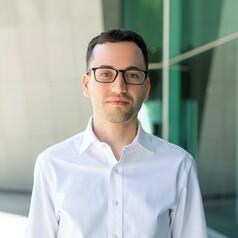
Christopher Phelps
Research Fellow, School of Accounting, Economics and Finance, Curtin University
Christopher Phelps is a Postdoctoral Research Fellow at the School of Accounting, Economics and Finance, Curtin University. Christopher has published research on a range of housing policy issues relevant to Australia, including housing affordability, housing supply, and within-city house price dynamics. Christopher recently completed his Economics PhD at Curtin University, for which he was awarded the 2021 Peter Barrington Gold Medal Award for research excellence in the study of land economy. His thesis presented three independent research essays related by a theme of residential segregation and its implications within Australian cities, specifically those relating to dwelling price movements and housing consumer wellbeing.
Less ![]()
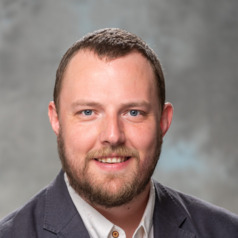
Christopher Pierce
Postdoctoral Scholar in Robotics, Georgia Institute of Technology
Dr. Pierce studies the biomechanics and neurobiology of C. elegans.
Less ![]()

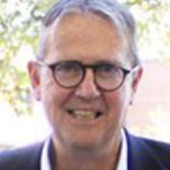
Christopher Reid
John Curtin Distinguished Professor, cardiovascular epidemiologist and clinical trialist, Curtin University
Less ![]()
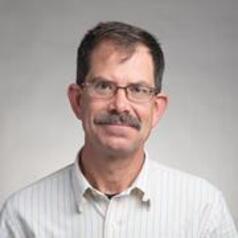
Christopher Rosin
Senior Lecturer in Political Ecology, Lincoln University, New Zealand
I trained as a geographer at the Univesity of Wisconsin - Madison, with a specific emphasis on political ecology. After completing PhD research in South America, I came to the University of Otago as a postdoctoral fellow in the ARGOS research programme and later contributed to associated research on climate change mitigation in agriculture and sustainability auditing. Since 2017, I have been at Lincoln University where I teaches courses in sustainable futures and environmental assessment. My most recent research activities have been on alternative proteins, marine ecotoursim, and food security.
Less ![]()

Christopher Rozell
Professor of Electrical and Computer Engineering, Georgia Institute of Technology
Christopher Rozell attended the University of Michigan, receiving a B.S.E. in Computer Engineering and a B.F.A. in Performing Arts Technology (Music Technology) in 2000. He attended graduate school at Rice University, receiving the M.S. and Ph.D. in Electrical Engineering in 2002 and 2007, respectively. Following graduate school, he joined the Redwood Center for Theoretical Neuroscience at the University of California, Berkeley as a postdoctoral research fellow in 2007. He joined the Georgia Tech faculty in July 2008, where he is affiliated with the Center for Signal and Information Processing.
Dr. Rozell's research interests focus on the intersection of computational neuroscience and signal processing. One branch of this work aims to understand how neural systems organize and process sensory information, drawing on modern engineering ideas to develop improved data analysis tools and theoretical models. The other branch of this work uses recent insight into neural information processing to develop new and efficient approaches to difficult data analysis tasks.
Less ![]()
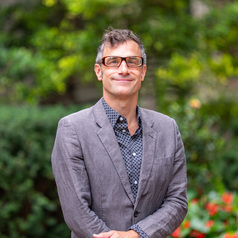
Christopher Schaberg
Director of Public Scholarship, Arts & Sciences at Washington University in St. Louis
PhD in English and Critical Theory from the University of California, Davis. Specializes in contemporary literature, cultural studies, environmental humanities, and air travel. Author of nine books, including most recently "Adventure: An Argument for Limits" (Bloomsbury, 2023). Directing the Program in Public Scholarship at Washington University in St. Louis. Founding series co-editor of Object Lessons.
Less ![]()
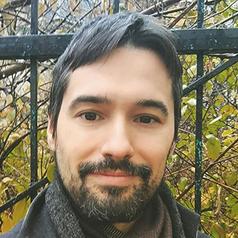
Christopher Schwartz
Postdoctoral Research Associate of Computing Security, Rochester Institute of Technology
Christopher Schwartz is an American philosopher and former journalist focused on counter-disinformation and cybersecurity. He completed his doctorate at KU Leuven's Institute of Philosophy in Belgium, and is currently a postdoctoral research associate at the Rochester Institute of Technology's Global Cybersecurity Institute where he is researching deepfakes and explainable artificial intelligence (xAI). Previously, he was a journalist in the former Soviet Union and Central Asia, including serving as editor-in-chief of NewEurasia Citizen Media and consultant for Factcheck.kg. Schwartz has also been a guest researcher at KU Leuven's Computer Security and Industrial Cryptography (COSIC) research group.
Less ![]()
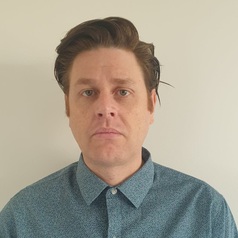
Christopher Simmonds
Adjunct Research Fellow, La Trobe University
Christopher Simmonds is an adjunct research fellow at La Trobe University. His PhD was in United States political and economic history, focusing on the 1980 election and the rise of modern conservatism.
Less ![]()
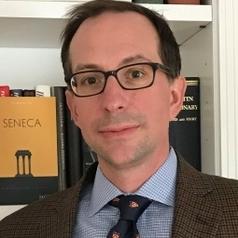
Christopher Star
Professor of Classics, Middlebury
I received degrees in Classics from Bates College (BA), the University of Cambridge (MPhil) and the University of Chicago (PhD). I also studied at the Humboldt University in Berlin. My teaching and research focus on the late Roman Republic and early Roman Empire. My long-standing interests lie in considering how the Romans came to grips with the transition from freedom to autocracy, how this transition shaped their concept of the self, and how their ideas continue to inform modern debates. My first book, The Empire of the Self, looks at the relationship between two of the emperor Nero’s advisors, the Stoic philosopher and dramatist Lucius Annaeus Seneca, and Petronius, the author of the proto-novel the Satyricon. I have also written Seneca, an introduction to his life, works and legacy, the first of its kind in English in several years.
My current research focuses on eschatology and accounts of global catastrophe. I have published Apocalypse and Golden Age: The End of the World in Greek and Roman Thought. I am also working with the inaugural Humanities Research Seminar on the topic, “Crisis, Catastrophe, and Recovery.” Supported by a grant from midd.data, I am developing a digital project that documents and analyzes the history and uses of the word “apocalypse” from ancient Greece to contemporary media.
Less ![]()
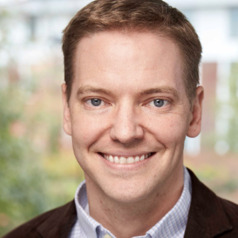
Christopher Strelluf
Associate Professor in Applied Linguistics, University of Warwick
I am a sociolinguist. I work primarily from variationist approaches. Most of my research has focused on describing varieties of English, and identifying changes in dialects resulting from a range of social and linguistic factors. My recent projects have included editing the Routledge Handbook of Sociophonetics; a series of "historical sociophonetic" projects to use old speech recordings to test hypotheses about sound change which were constructed to explain present-day data; and collaborations on English language and English language teaching in African contexts.
Public engagement is important to my work, too. I am a Fellow in the Warwick Institute of Engagement, and frequently share knowledge about language and linguistics in media appearances, webinars, presentations, and other events. My engagement work also includes collaborations with Cockney Cultures to celebrate non-standard Englishes traditionally associated with East London and reduce language prejudice faced by speakers of these varieties, as well as collaborations across the Eutopia Alliance of universities to foster public engagement and impact through historical sociolinguistic research.
Less ![]()
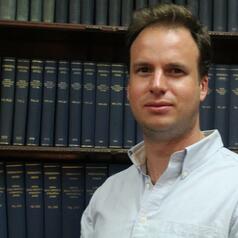
Christopher Vandome
Senior Research Fellow, Chatham House and PhD candidate, International Relations, University of the Witwatersrand
Christopher Vandome is a research fellow with the Chatham House Africa Programme. His research focuses on the political economy and international relations of Southern Africa, as well as regional peace and security, environmental issues and extractive industries. He has written several multi-author and single author peer reviewed book chapters, reports, articles and papers.
He has significant experience project managing research on African political-economy issues, including coordinating inclusive multi-stakeholder research processes, conducting extensive field work, and organizing international events and conferences as well as events with senior international political figures.
Christopher writes and comments regularly on political issues in southern Africa including for Africa Report, Al Jazeera, BBC, SABC, Huffington Post, Mail and Guardian, Newsweek and the Telegraph.
Christopher previously lived in South Africa, and has a Master’s Degree from the University of Cape Town.
Less ![]()
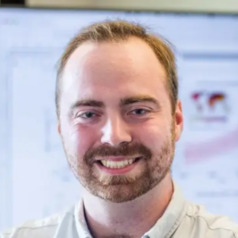
Christopher W. Callahan
Chris Callahan is a Ph.D. student in Justin Mankin's Climate Modeling and Impacts Group. His research focuses on the economic impacts of climate change. He uses a variety of methods from both the physical and social sciences to understand the relationship between climate change, extreme events like heat waves and El Niño events, and outcomes like economic growth.
Less ![]()
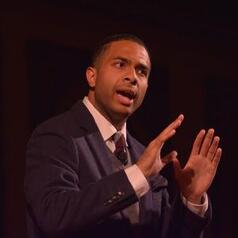
Christopher Wadibia
Junior Research Fellow in Theology, University of Oxford
Christopher Wadibia is a Junior Research Fellow at Pembroke College, Oxford researching the nexus between political Pentecostalism and racism in the UK under the aegis of Pembroke's Religion and the Frontier Challenges program. Christoper's doctoral research studied the politics underpinning how the Redeemed Christian Church of God (RCCG), one of Nigeria's most popular and sociopolitically influential indigenous Pentecostal churches, invests in Nigerian development causes. Before Oxford, Christopher completed a BA Government at Georgetown University (2016), an MPhil Intercultural Theology and Interreligious Studies at Trinity College Dublin (2018), and a PhD Theology and Religious Studies at Selwyn College, Cambridge (2021).
After graduating from Georgetown, the United States Department of State awarded Christopher a Fullbright grant to research Muslim-Christian relations in Nigeria (2016-2017). After completing his MPhil, Trinity College Dublin awarded Christopher the James Haire Prize for best coursework. As a doctoral researcher at Cambridge, the Cambridge University Centre for Geopolitics appointed Christopher as an Ax:son Johnson Research Assistant in Applied History, the Cambridge University Woolf Institute appointed Christopher as an Honorary PhD Scholar, and Christopher served as the Divinity Faculty Representative for the Cambridge Data Champions Programme, in addition to engaging with other academic activities. Alongside his Junior Research Fellowship, Christopher is Assistant Editor of the academic journal PentecoStudies and an Affiliated Researcher at the Cambridge University Woolf Institute. Christopher’s research interests include Global Pentecostalism; religion, politics, and development; religion, society, and public policy; and Muslim-Christian relations. Christopher is passionate about bridging academic research with public engagement, and welcomes opportunities to supply consultative solutions to problems related to his expertise.
Less ![]()

Christopher Warren
Assistant Professor, Preventive Medicine (Epidemiology), Feinberg School of Medicine, Northwestern University
Less ![]()

Christopher Whitehead
Lecturer in Law, Auckland University of Technology
Christopher Whitehead is a Lecturer in Law. He is interested in the law of the English- and French-speaking worlds and of the Pacific, particularly as it relates to the financial services. He is currently researching various questions of insurance law, such as how insurers may transfer business to one another and to what extent insurers may cover penalties for regulatory and criminal liability. Before joining AUT Law School, he practised for 10 years in Paris, France, as legal counsel to a French-headquartered banking group and then to a United States-headquartered insurance group. In these roles, he advised on the law of several countries (including France, Germany, Italy, Poland, Spain, and the United Kingdom) as applying to his employers’ business — on questions of insurance law, as well as of banking and general business law. More recently, he worked in Montreal, Canada, as a data-protection consultant for a Japanese conglomerate. In 2020, he received an AUT Excellence in Teaching Award. Also, from 2001 to 2004, he worked at AUT as a Lecturer in French.
Less ![]()

Christopher Yorke
Lecturer in sports management, Western Sydney University
Dr Christopher Yorke is an associate lecturer in Sport Management in the School of Business at Western Sydney University.
Christopher is a Fellow of the Higher Education Academy and a member of the Sport Management Association of Australia and New Zealand.
Dr Christopher Yorke completed his PhD with the topic “Social Impact through Local Sport: Adapting Corporate Social Responsibility through Sport (CSRTS) to Small and Medium Enterprise (SME)” from the University of Portsmouth, UK. This work utilised the experiences of SME practitioners to propose an innovative framework to create partnerships that achieve social impact and financial sustainability. Chris has an extensive history of involvement in community sport and is especially interested in sport for social good.
Less ![]()
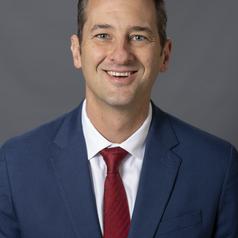
Christopher A. Cooper
Professor of Political Science, Western Carolina University
Christopher A. Cooper is Madison Distinguished Professor and Director of the Public Policy Institute in the Department of Political Science and Public Affairs at Western Carolina University. He studies American politics with a focus on state politics, elections, North Carolina politics, and politics of the American South. Cooper is the the author or co-author of dozens of articles in academic journals including American Politics Research, Political Research Quarterly, Social Forces, Public Opinion Quarterly, State Politics and Policy Quarterly, and Election Law Journal. He is also the co-editor of the New Politics of North Carolina, and co-author of The Resilience of Southern Identity. His next book, Anatomy of a Swing State: A North Carolina Politics Primer is under contract with the University of North Carolina Press.
Cooper is a frequent source for journalists and has been quoted in a variety of outlets including the New York Times, Washington Post, NBC, CNN, Fox News, The New Yorker and the Sylva Herald. He also frequently writes for popular audiences in a variety of outlets, contributes to the Old North State Politics Blog, and has served as an expert witness in voting rights cases.
He has also received Western Carolina University's highest awards for research (university scholar) and teaching (Board of Governors Teaching Award). In 2013, the Carnegie Foundation for the Advancement of Teaching named him the North Carolina Professor of the Year.
Less ![]()
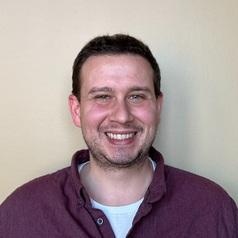
Christopher D. Blake
Assistant Professor of Economics, Emory University
Christopher D. Blake is a tenure-track Assistant Professor of Economics at Oxford College of Emory University. He teaches a wide range of introductory courses, as well as courses on the History of Economic Thought, Intermediate Microeconomics, and Regional Economics. After graduating from Colorado State University with a PhD in Economics in 2017, Dr. Blake has published several works on regional policy and labor market outcomes. His research has investigated how income is distributed regionally across the United States, how localized policies affect economic outcomes, and how demographics and economic returns are related across space.
Less ![]()
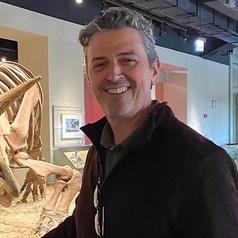
Christopher Gordon De Pree
Deputy Electromagnetic Spectrum Manager, National Radio Astronomy Observatory
I served as Professor of Physics and Astronomy and Director of Bradley Observatory at Agnes Scott College from 1996-2021. My research interests are high mass star formation as studied with radio telescopes including ALMA and the Very Large Array. In 2021 I accepted a position with the NRAO in the Spectrum Management office. NRAO is working with a number of commercial satellite operators to come up with novel solutions to spectrum coexistence for active and passive users.
Less ![]()

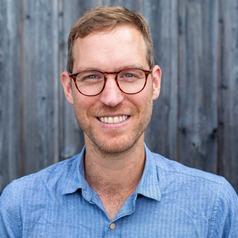
Christopher John Muller
Senior Lecturer in Cultural Studies and Media, Macquarie University
Chris Muller is a Senior Lecturer in Cultural Studies and Media at Macquarie University, Sydney.
Less ![]()
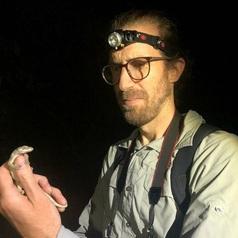
Christopher K. Woolley
Post-doctoral Researcher in Ecology, Te Herenga Waka — Victoria University of Wellington
Less ![]()
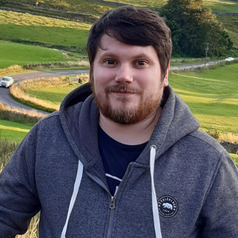
Christopher Patrick Hawkins
Lecturer in Cyber Security and Computer Science, University of Staffordshire
Chris has served for over 7 years as a Detective Constable before returning to University to complete his Master’s in Cyber Security and PhD in Computer Science. He is a EC-Council Certified Ethical Hacker to Master level and has experience in GNU/Linux OS, Operating System Security, Cyber Security Policy and Governance and Penetration Testing.
Less ![]()
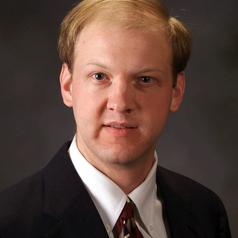
Christopher R. Anderson
Associate Professor of Electrical Engineering, United States Naval Academy
Christopher R. Anderson is an Associate Professor at the United States Naval Academy. He has over two decades of experience in radiowave propagation measurements and modeling, software-defined radios, and dynamic spectrum sharing. He is the Founder and Director of the Wireless Measurements Group (WMG), a focused research group that specializes in spectrum, propagation, and field strength measurements in diverse environments and at frequencies ranging from 300 MHz to 28 GHz. He is a former Editor of the IEEE Transactions on Wireless Communications and was a Guest Editor of the IEEE Journal on Selected Areas in Signal Processing Special Issue on Non-Cooperative Localization Networks. He is currently the Chair of the Electromagnetic Metrology Commission in the U.S. National Committee for the International Union of Radio Science.
Less ![]()
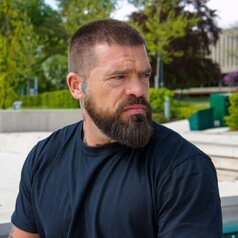
Christopher R. Matthews
Social Scientist, School of Science and Technology, Nottingham Trent University
Less ![]()

Christopher Wong Michaelson
Professor of Ethics and Business Law, University of St. Thomas
Christopher Wong Michaelson is a philosopher with 25 years of experience advising business leaders pursuing meaning and providing work with a purpose, and he is the coauthor (with Jennifer Tosti-Kharas) of "Is Your Work Worth It? How to Think About Meaningful Work". He earned his Ph.D. from the University of Minnesota and then joined the New York office of Price Waterhouse (now PwC) as one of the first five consultants in a business ethics practice. When he accepted a full-time faculty position teaching corporate ethics at the Wharton School of the University of Pennsylvania, he kept a foot for several more years at PwC working on its Global CEO Survey and as its first Strategy Officer to the World Economic Forum. Christopher went from Wharton to NYU's Stern School of Business, where he still teaches, and later joined one of the largest business ethics faculties in the world at the University of St. Thomas, where he is the Opus Distinguished Professor and Academic Director of the Melrose and The Toro Company Center for Principled Leadership. He lives in Minneapolis with his wife, three kids, and two dogs.
Less ![]()
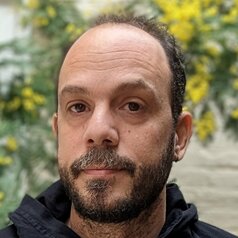
Christos Bechlivanidis
Associate Professor - Experimental Psychology, UCL
I'm a cognitive scientist with a background in computer science. My research is focused on causation, causal explanation and responsibility attribution. I'm mostly interested in the perception of causation and the relationship between time and causal relationships. I'm also studying how people understand the concept of the unconscious, and the role of unconscious manipulation.
I'm an Associate Professor in Experimental Psychology at UCL, where I'm teaching computer programming and philosophy of mind.
Less ![]()
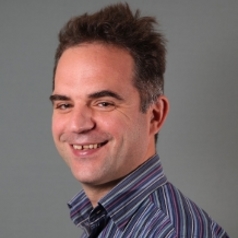
Christos Kotsogiannis
Christos Kotsogiannis is Professor of Economics at the University of Exeter and a Research Fellow at CESifo, Germany. He was born in Athens and studied for his Ph.D. in Economics at the University of Essex.
His research is primarily in the field of public economics, political economics, environmental economics and international trade, with publications in journals such as,American Economic Review, Journal of International Economics, Journal of Environmental Economics and Management, Journal of Public Economics, Journal of Public Economic Theory,International Tax and Public Finance, Journal of Urban Economics and Economics Letters. He has been the guest co-editor for a special issue on climate change issues for the Journal of Environmental Economics and Management, Environmental and Resource Economics and International Tax and Public Finance. He is currently on the editorial board of the Journal of Tax Administration and he is one of the three editors of CESifo Economic Studies.
Kotsogiannis has been a visiting scholar at the International Monetary Fund, and a consultant for the World Bank on issues of fuel subsidies. He was Head of the Economics Department at University of Exeter Business School from 2011-2014 and held a Leverhulme Trust Research Fellowship in 2009-2011. In 2015 Kotsogiannis was awarded the Copernicus International Fellowship from the University IUSS-Ferrara 1391.
Less ![]()

Christos Ntanos
Research director at the Decision Support Systems (DSS) Laboratory, National Technical University of Athens
Christos Ntanos is a research director and senior researcher. He holds a Bachelor's and a Master's degrees in Electronic and Computer Engineering from the University of Birmingham, UK, an MBA from the Athens University of Economics and Business, and a PhD from the School of Electrical and Computer Engineering at the National Technical University of Athens (NTUA). His expertise spans the management of Information and Communications Technology (ICT) and cross-cutting research and innovation, as well as implementation projects, which includes coordinating initiatives under the Horizon 2020 and Horizon Europe programmes. With extensive experience in various managerial, research, design, and implementation roles, Ntanos specialises in the development of ICT solutions, estimating IT and database systems, context awareness, e-health, disaster resilience and response, cybersecurity, risk management, Decision Support Systems, and Business Process Reengineering.
Less ![]()
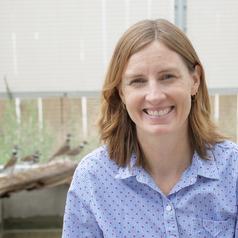
Christy Morrissey
Professor in Biology and Ecotoxicology, Toxicology Centre, University of Saskatchewan
Professor in the Dept of Biology and an Associate in Toxicology and the School of Environment and Sustainability at the University of Saskatchewan with a research program focussed on the effects of pesticides and other industrial contaminants on birds and aquatic ecosystems
Less ![]()
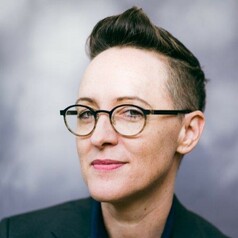
Christy Newman
Professor, Centre for Social Research in Health, UNSW Sydney
Christy Newman is Professor at the UNSW Centre for Social Research in Health as well as Acting Deputy Dean and Associate Dean Engagement and Impact for UNSW Arts, Design and Architecture. They are a queer/bi+ and non-binary person, and use the pronouns they/them.
Christy is a qualitative social researcher of health, sexuality, and gender, with a background in sociology, communications and cultural studies. They have worked in partnership with communities, governments, and clinical services for almost 20 years to understand the social dimensions of bloodborne viruses, sexual and reproductive health, and queer, bi+ and trans health and wellbeing, including their intersections with the related fields of mental health, Aboriginal health, harm reduction, disability, cancer prevention, violence prevention, adolescent health, family wellbeing, and gender and sexuality studies.
Areas of expertise for public/media contributions:
Social aspects of: HIV and viral hepatitis; sexual and reproductive health; LGBTQ+ health and wellbeing; sexuality and gender diversity
Less ![]()

Chrys Vilvang
PhD Candidate, Communication Studies, Concordia University
Chrys Vilvang is a PhD candidate in Communication Studies at Concordia University. He is interested in the impact of digital technologies on consciousness and is currently exploring archives, algorithms, artificial intelligence, photography, and memory through research-creation.
Vilvang examines the production of meaning through images and how these processes are being transformed by tools that intervene, remediate, and alter our relationship with our photographic past.
Chrys has a BA in Cultural Studies from McGill University (2011), an MA in Media Studies from the University of Amsterdam (2015), and an MA in Media Production from Toronto Metropolitan University (2017). He has worked as a research assistant with the Montreal Signs Project and the Studio for Media Activism and Critical Thought.
Less ![]()
- Market Data























